Developing and adapting clinical guidelines in India
Case study
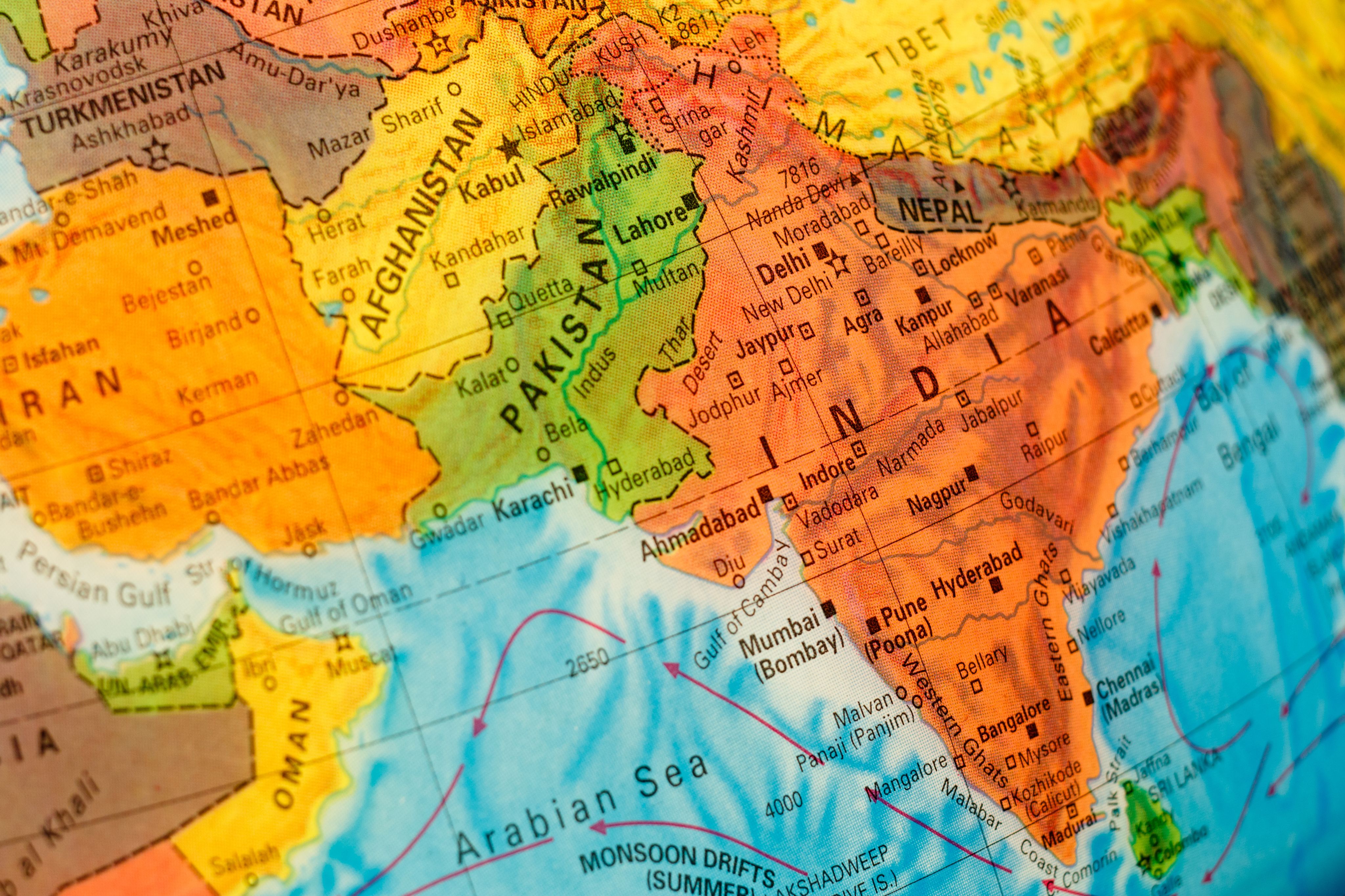
NICE International supports countries to improve their own nation’s health and wellbeing. It does this by sharing best practice and helping to drive improvements in evidence-based decision-making. In this case study, we explore our collaboration with the Indian Health Outcomes, Public Health and Economics Research Centre (IHOPE). This project focuses on providing support for guideline development in the field of eye health, relevant for use in India.

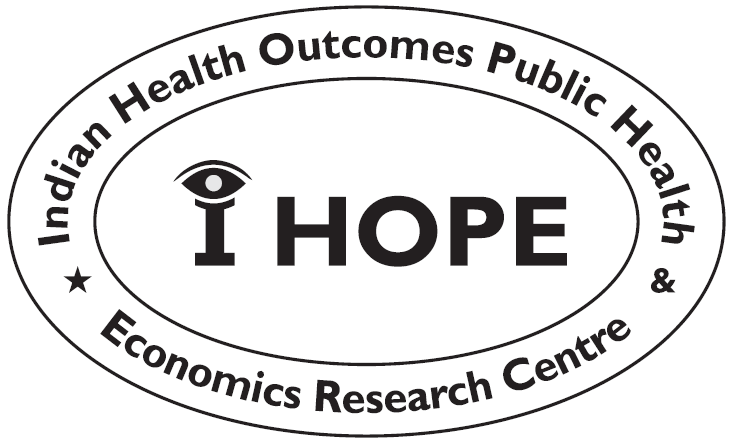
“It’s been terrific to engage with IHOPE as they lay the groundwork for developing eye health guidelines in India. It gives us the opportunity to share ideas and learn how others deal with issues common to all guideline developers.”
Hugh McGuire, senior scientific adviser at NICE International
"Our collaboration with NICE International has brought clarity on how to select and prioritise topics that are important to policy makers. It has also helped in identifying and overcoming the barriers to contextualizing NICE’s guidelines for an Indian scenario.”
Dr Raja Narayanan, principal investigator at IHOPE
Our Indian partner
IHOPE is an interdisciplinary research centre made up of 3 collaborating organisations:
- LV Prasad Eye Institute Hyderabad
- Indian Institute of Public Health Hyderabad
- Indian Institute of Management Ahmedabad.
NICE International began collaborating with IHOPE in June 2021.
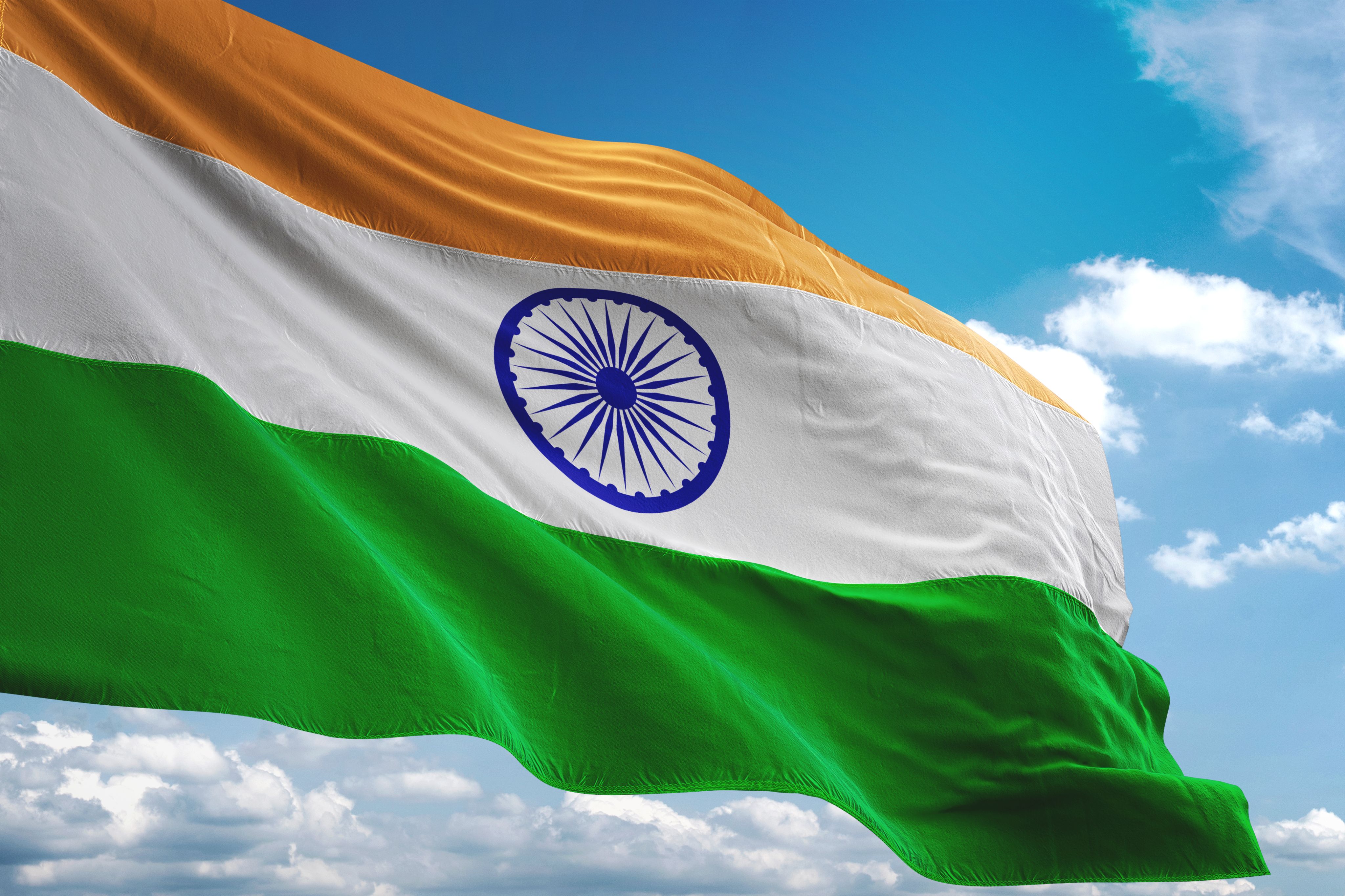
Working with IHOPE
IHOPE wanted to know how NICE developed and implemented its eye condition guidelines in the UK. They were keen to understand the methods and processes we used and how they could adapt these for the Indian context.
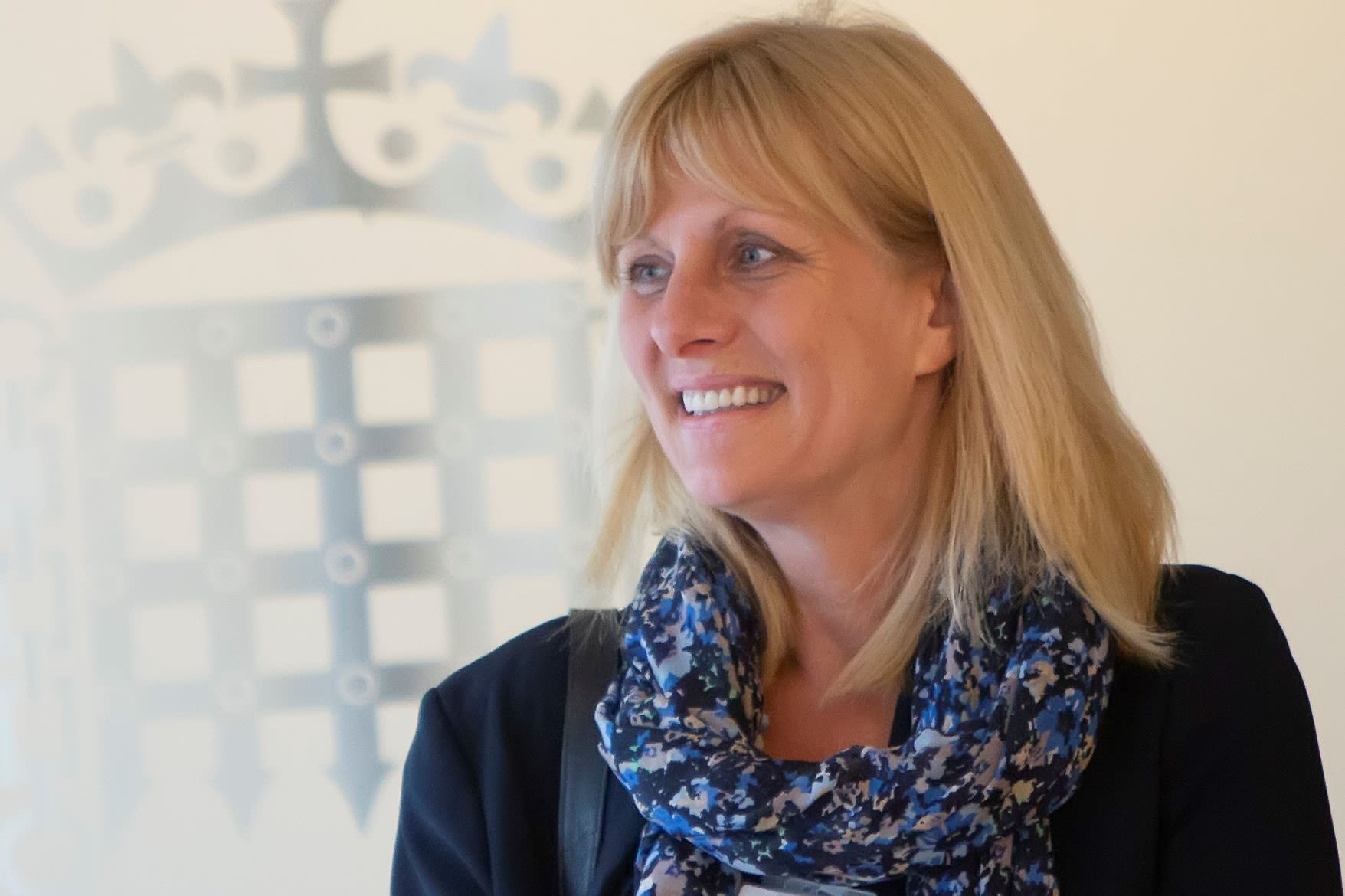
Professor Gillian Leng spoke at the 2021 IHOPE conference
Professor Gillian Leng spoke at the 2021 IHOPE conference
In September 2021, our then chief executive, Professor Gillian Leng, was the keynote speaker on policy at the inaugural IHOPE conference.
Between November 2021 and February 2022, NICE International teamed up with experts from our Centre for Guidelines and Health and Social Care Directorate. Together, they delivered a series of knowledge transfer seminars. This provided IHOPE with an introduction to how NICE develops clinical guidelines, quality standards and indicators. The sessions also covered implementation support, ensuring healthcare professionals use our guidelines in practice.
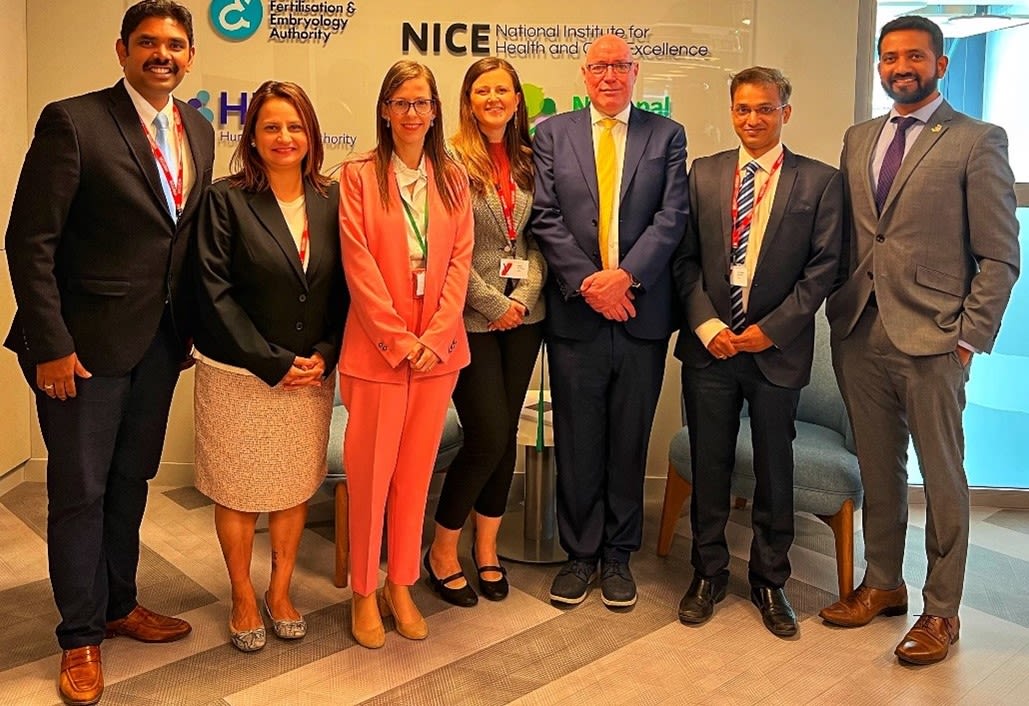
IHOPE delegation visits NICE
IHOPE delegation visits NICE
In May 2022, the team from IHOPE visited NICE in the UK. They were led by Dr Raja Narayanan, Dr Anthony Vipin Das and Arnaz Dalal, along with Ashwin Ravindran from the British Deputy High Commission. They discussed the next phase of engagement and agreed content for a second series of knowledge transfer seminars.
Benefits
IHOPE has shared the knowledge it has gained through this collaboration with system partners in the Indian healthcare system. This includes the country’s National Health Authority, key medical associations and patient groups. They’ve also published a series of articles in the IHOPE Journal of Ophthalmology summarising the sessions and learnings.
NICE International also involved both The International Decision Support Initiative and the Center for Global Development in this project. Both organisations have experience of capability-building in India. By involving these key organisations in this work, IHOPE has developed strong working relationships with other important organisations in India with experience in guideline development. They can now tap into these networks and expertise.
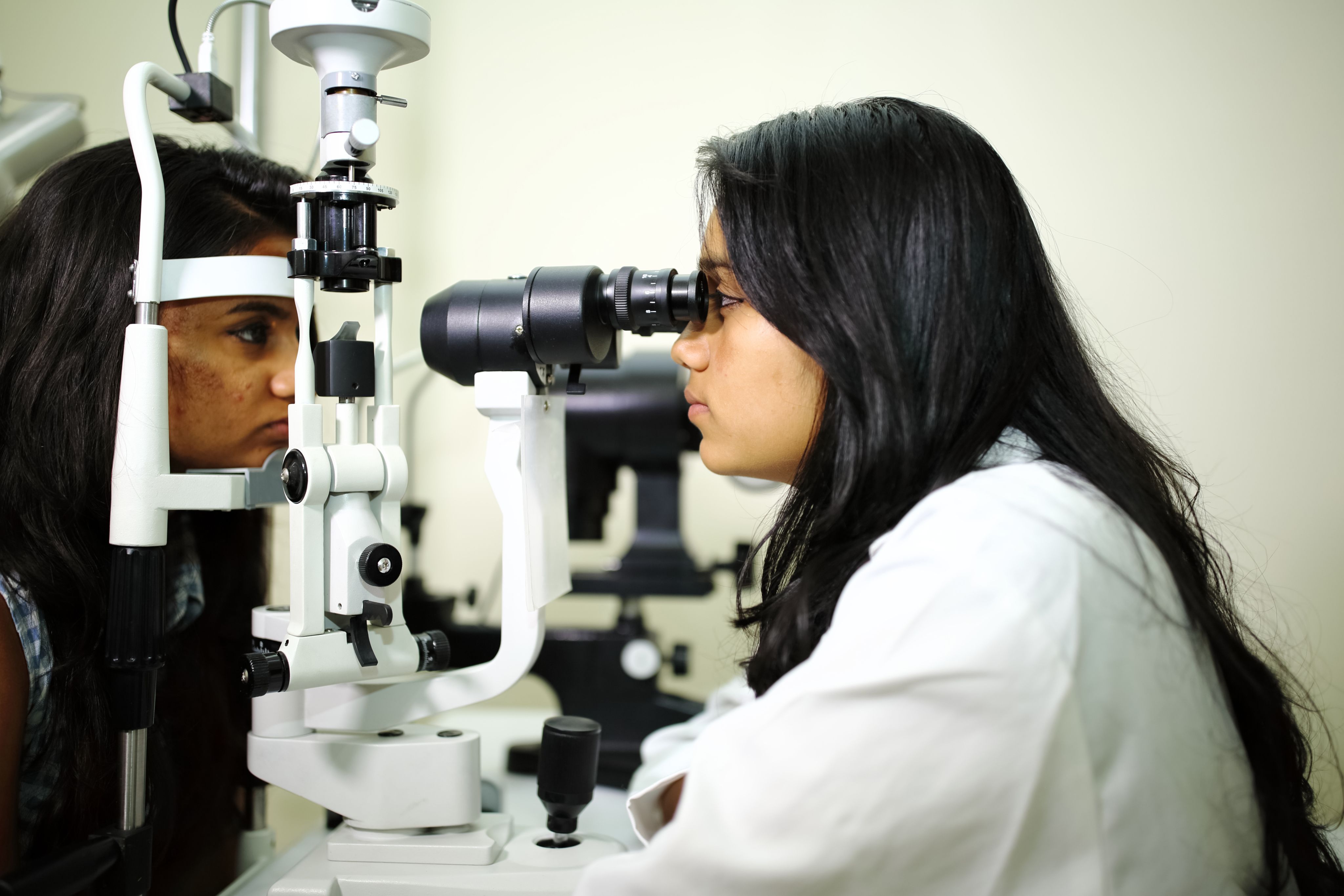
Next steps
- IHOPE and NICE International will continue to advance processes and methods for developing, adapting and contextualising guidelines. IHOPE will follow these when they come to develop their own guidelines. This may include the contextualisation of NICE guidelines to the Indian setting.
- IHOPE will develop a clinical guideline on diabetic retinopathy and other eye conditions relevant to the Indian context.
- NICE International will deliver a more advanced series of knowledge transfer seminars. They will design these for the IHOPE team responsible for managing the guideline development process.
